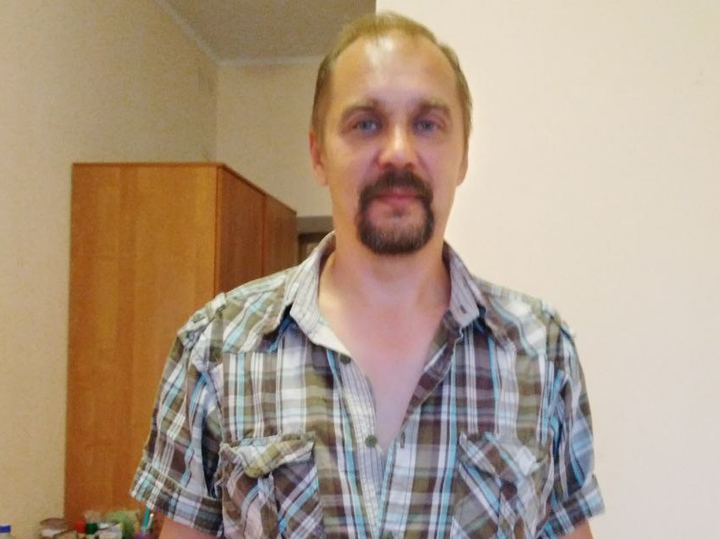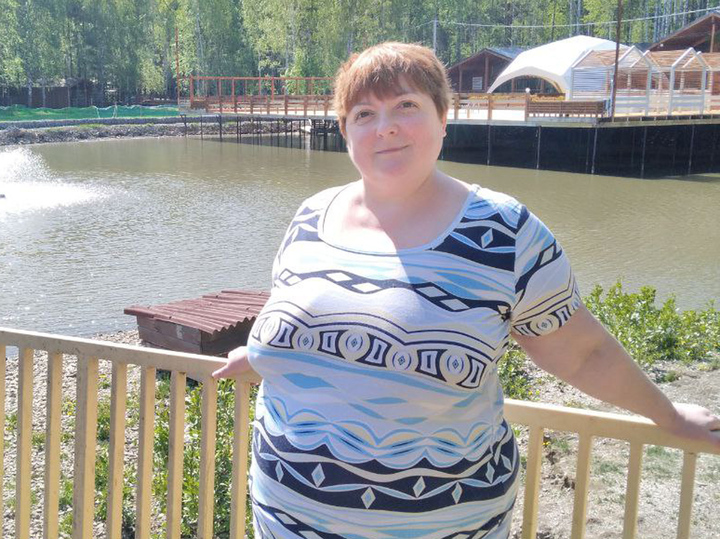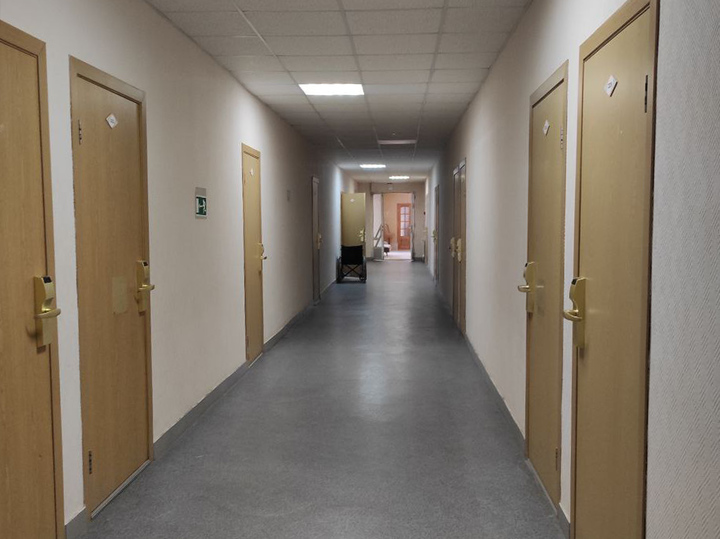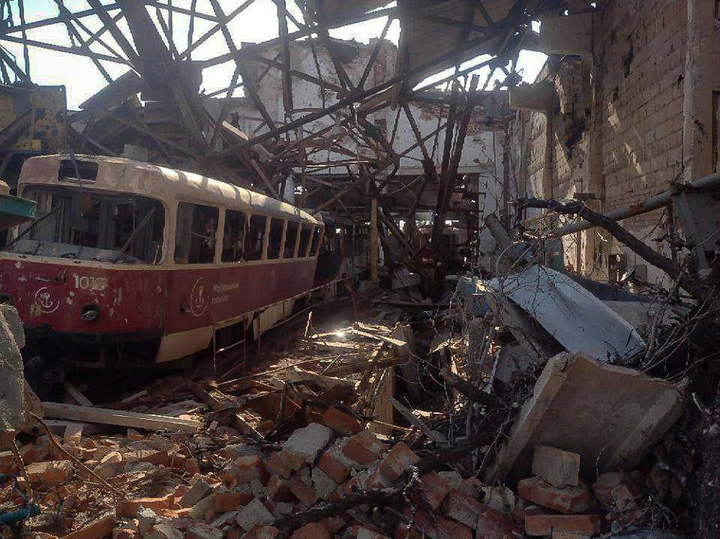“We are like tumbleweeds”: refugees from Mariupol spoke about the plight in Russia
[ad_1]
“We lived for a year in a temporary accommodation facility in Nizhniye Sergi, 98 kilometers from Yekaterinburg,” says Natalya Kostyukova. – I remember that on May 6 I was discharged from the hospital, and on May 10, an announcement was suddenly posted in our temporary accommodation center that there would be a meeting in the club, the mayor of the city, a representative of the Ministry of Emergency Situations would come. When we got together, we were told that we had to leave the territory of the sanatorium by May 25, our temporary accommodation center was being disbanded. People were confused. Someone was crying. There were those who closed themselves in the room and shouted that they would not go anywhere, why they were being treated like this … Those who had nowhere to go were redistributed to other temporary accommodation centers. Someone was sent to Nizhny Tagil, someone to Polevskoy. My husband and I ended up in Yekaterinburg. We were settled in a hotel in the Uralmash area …
Natalya tries not to remember the last months of her life in Mariupol. When Ukrainian nationalists began to equip machine-gun nests in their entrance, punch passages in the walls between apartments so that they could move across the entire floor, Natalya and her husband decided to run away. They got out of the burning Mariupol on foot, walked through the smoke and cinders along the broken road, hid in the craters during shelling.
Then there was an evacuation camp, a humanitarian bus to Dzhankoy. There, on the railway tracks, there was a train that went to Yekaterinburg. So they ended up in the Urals.


Natalia’s husband, Alexander, spent 8 months in the hospital. When he was x-rayed, they found a spot on his lungs. Tuberculosis was suspected, but the diagnosis was not confirmed. Later it was established that Alexander had a chemical burn on his lungs. When an ammonia tank was blown up at Azovstal, he apparently inhaled poisonous fumes. The wounds on the lungs gradually healed. In February, he was discharged from the hospital.
– When we got to the temporary accommodation center in Yekaterinburg, Sasha managed to find a job very quickly, in three weeks. He is a truck driver, he has been driving for 25 years. He got a job at Uralmash as a driver for a concrete mixer. Kind people loaned a small amount, Sasha was able to pass a medical examination. They also left money for him to travel, he had to get to work an hour and a half. Now sometimes, when there are a lot of orders, he works 12-16 hours a day.
Refugees are fed in the hotel. Sasha agreed to give dry rations to work.
– Give out “Doshirak” or dry mashed potatoes. Four slices of bread, boiled egg, tea bags, sugar. My husband often travels out of town, delivers concrete to a construction site in Verkhnyaya Pyshma. While unloading is in progress, he could have a snack, he has 30 minutes. But for instant noodles, you need boiling water. My husband could take a thermos with him, but we don’t have money for it yet. Sasha worked only two weeks.
Natalia herself is not hired anywhere.
– As soon as I start to undergo a medical examination, they see the diagnoses – insulin-dependent diabetes, bronchial asthma, neuralgia, arrhythmia – and immediately put an end to me. Under any pretext they refuse.
Natalya says that their hotel is on the outskirts, next to the forest. She is very interested in the history of Yekaterinburg, she would very much like to visit the museum “Malachite Box”, the Bazhov Museum, the regional museum of local lore. But you have to get to the center with three transfers.
— A bus ticket costs 35 rubles. I need 200 rubles to go there and back. For me this is critical. I have no income. I still have not been issued a disability, everything is dragging on. (In Ukraine, Natalya had a second disability group, but the documents were not preserved, they burned down.)

Natalia, like Alexander, needs shoes.
— It often rains in the Urals. I would love to have some waterproof shoes. For example, rubber shoes. A year and a half ago, during the evacuation, we were all given the same blue rubber slippers in Dzhankoy. I used to go to them all the time. And now they are broken for me. We cannot buy new ones yet, they cost 600 rubles. We are now waiting for Sasha’s first salary.
Volunteers, as Natalya says, somehow all disappeared at once.
— We phoned a couple of months ago with a volunteer woman who used to help us with personal hygiene items, she was sincerely surprised: “Are you still in the TAP? We thought you were all given housing certificates.” For some reason, many people are sure that we bought apartments and left. And only refugees from the Kherson region received housing certificates. Those who were evacuated after the withdrawal of Russian troops. Imagine what it was like for us when the people of Kherson were summoned and then they shouted with joy: “Oh, I have a certificate for 6 million”, “My God, but I have 8!”. One woman who had six children received a certificate for 10 million rubles. In Nizhniye Sergi, where our first temporary accommodation center was located, she immediately bought a three-story house in a cottage settlement for 6.5 million, so that each child would have a room. And we looked at all this and just clapped our eyes.
Kherson residents – the second wave settlers, as Natalya says, kept to themselves. In addition to housing certificates, they were also given monetary compensation. This decision was made at the federal level.
– They received a hundred thousand each, bought gold right away, someone started drinking. Donetsk and Lugansk, of course, were offended, because so many of us were left without housing. And they didn’t get anything. Because of the people of Kherson, the attitude of the townspeople towards us has changed. We heard: “We have been hunchbacked for 20-30 years, paying off the mortgage, and the refugees immediately received certificates of 5-10 million, got housing. Why do they have such privileges? We are tired of explaining that we do not have any privileges. In May last year, we were given a one-time allowance of 10,000 rubles. And that’s it.

Natalya and Alexander received Russian passports, where they were given a Mariupol residence permit. Both admit that they miss their hometown. But they have nowhere to return to Mariupol.
– Our Kirovsky microdistrict was almost completely destroyed. He stood right next to the Azovstal plant, where intense fighting was going on. There were sixteen 9-story buildings, two 12-story buildings, two 14-story buildings. We can say that this area no longer exists and our house does not exist. We were told that, perhaps, in three years, in 2026, our microdistrict will be restored. Where can I live for these three years? We are offered to return and take a mortgage at 2%. And how to pay? My husband and I are both over fifty, our strength is not the same, there is no health.
As Natalia says, many residents of the city have painful memories associated with Mariupol.
“I keep in touch with many of my acquaintances, they send me videos from Mariupol, where public transport is running along the streets, builders are plastering houses. And before my eyes there are burnt-out panels, a Ukrainian tank beating from behind a transformer booth, craters from shells near a playground. I became afraid of loud noises. And even talked about this with psychotherapists. Many who were sitting in the basements during the shelling developed a fear of the dark. I myself still sleep with the light on. Sometimes I wake up in the middle of the night with my heart pounding. I find myself thinking that I’m listening all the time. We have an airfield near the temporary accommodation facility. As soon as we hear a rumble in the sky, we look up. The chilling sound of flying mines remained in my memory. We immediately see our own, Mariupol, among the refugees.
In Mariupol now, as Natalia says, there are a lot of visitors.
— Builders have arrived who are rebuilding the city. Many residents of Donetsk moved to live in Mariupol because of the constant shelling. And some of the refugees have not yet decided to return home, especially those who have health problems. We have 250 people living in the hotel. Almost all of them are from the Donetsk region, but there are also from the Lugansk region. There are mothers with sick children. One child has back problems. Another, while they were sitting under shelling in the basement, his legs were crushed by a stove. Someone still walks in a corset. Where to go with sick children? Mariupol has just begun to be restored. As they tell me, there are still interruptions in electricity, water and the Internet.
Life for many refugees, as Natalya says, has just begun to improve. People have found work. Mostly heavy, low-paid, not in the specialty. Many were told that: “You are hacking, we cannot allow you to work with people.” I had to go to distribution warehouses, work in shifts. People have just begun to “set aside a penny” to start an independent life. But they need time. And now they were told that by July 15 they must all leave the hotel. They call for a conversation one at a time, convince them to sign a paper that the person himself, voluntarily wants to move out of the hotel. Most refused to sign this statement.

The temporary accommodation point is going to be disbanded. A year has passed, according to the regulations, TACs must be closed for sanitation. Officials insist that there is no question of any forced eviction. They promise that no one will be left without a roof over their heads. But the refugees are sure that they will be resettled in temporary accommodation centers throughout the Sverdlovsk region, where it is difficult to find work even for locals.
– Many are crying. People do not have the strength to go somewhere again, to start all over again. And people still cannot afford to “float freely”. The salaries of the refugees are such that if you rent a house, there will be nothing left to live on. Rental prices here are “space”. Children have just adapted, got used to school and classmates. And now they’re about to be taken down. Of course, we are grateful to Russia, they did not leave us to the mercy of fate, they gave us a roof over our heads, they helped us with the documents. But at the same time, we understand that the local authorities have no plan of what to do next with us.
On a nervous basis, Natalia had an attack, she ended up in the hospital. The refugees decided not to be silent. They told reporters about the sore. After the uproar in the press, the eviction of refugees from the hotel was decided to be suspended.
“For how long is still unknown,” Natalya says bitterly. “Uncertainty weighs heavily on the psyche. We live with the feeling that we have no future.
[ad_2]
Source link








